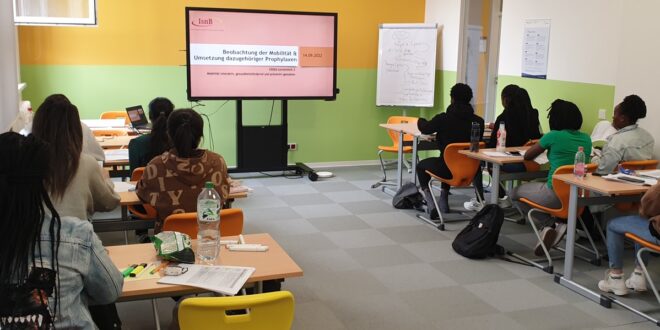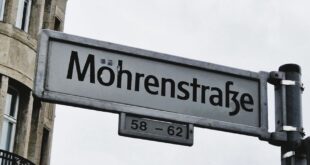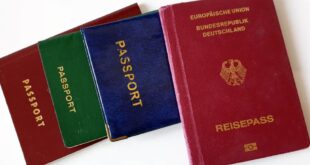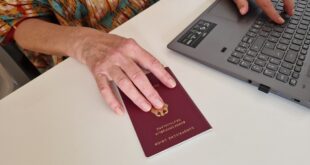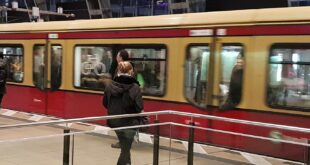German employers are short of hundreds of thousands of workers. To respond to the skills shortages in the country, the current federal government made a reform of the existing laws governing immigration into the country a major priority when it assumed office.
The objective of the reform is to address the acute labour shortage in most sectors by bringing in skilled workers from around the world. The number of unfilled vacancies in 2022 was around 1.98 million. IT and technology, medical care, technology and logistics are among the hardest hit sectors.
With its majority in the parliament, changes to the Skilled Immigration Act, first enacted in March 2020, were passed last summer in the federal parliament.
These changes, which lower the barriers to the immigration of third country nationals for the purpose of employment and training, were to enter into effect in three phases beginning from last November.
———
The first changes, which came into force on 18 November 2023, mainly affect the conditions for the grant of the EU Blue Card, Europe’s equivalent of the US Green Card. These open the possibility of obtaining an EU Blue Card to a wider group of people through the following features:
- Lower annual gross salary threshold for the grant of the EU Blue Card: €41,041.80 gross (2024) for the so-called bottleneck professions and €45,300 for all other occupations [A bottleneck profession is a profession with a shortage of skilled workers]
- IT specialists will be able to obtain an EU Blue Card if they do not have a university degree but can prove that they have at least three years of comparable professional experience
- The list of bottleneck professions for the EU Blue Card was increased to include nursing and midwifery, dentistry, pharmacy, child care and logistics, among others. Originally, the Blue Card were only granted in the following professions: mathematics, IT, science, engineering and human medicine
- New regulations for residence permit for skilled workers with vocational training and skilled workers with academic qualifications: People are now entitled to a residence permit if all requirements (in accordance with the relevant existing regulations in Sections 18a and 18b AufenthG) are met. The restriction that individuals may only work on the basis of the skills acquired with the professional qualification has been removed. This means that applicants are not restricted to jobs related to their qualifications when looking for employment
- Easing of the requirements for the employment of professional drivers from third countries
- Employment of professional drivers: The granting of approval by the Federal Employment Agency for employing professional drivers from third countries is to be simplified. As a result, it will no longer be checked whether the applicant has the required EU or EEA driving licence and the initial qualification or accelerated initial qualification
———
A new batch of changes entered into effect on 1 March 2024. These are:
- Improvement of the conditions for the grant of entry into Germany for the purpose of undergoing qualification measures for applicants to receive full recognition of their foreign qualifications
- Provision of entry visa for the purpose of undergoing a skills analysis in Germany to establish the equivalence of their qualification
- Expansion of the possibilities for the employment of people with highly developed practical professional knowledge from third countries. Conditions are that applicants must have a professional qualification or a university degree recognised. In the case of a professional qualification, a training period of at least two years is required. In addition, applicants must have a minimum of two years’ work experience in the occupation they wish to enter.
- For IT specialists, access to the labour market will be further facilitated by reducing the required professional experience to two years (from three).
A professional qualification or university degree is still not required. - Language skills are no longer required for visa purposes.
- Widening of the possibilities of entry and residence of third-country nationals for the purpose of seeking an apprenticeship: max. age of applicants increased from 25 to 35, German language requirements lowered to level B1, maximum residence period increased from six months to nine months and holders of the residence permit can work for up to 20 hours per week
- Vocational trainees can now take up secondary employment of up to 20 hours per week
The third phase of the reform of the immigration laws will take effect on 1 June 2024 and include the following:
- Introduction of the “opportunity card” (Chancenkarte) to enable jobseekers to come to Germany to look for employment. The conditions are that applicants’ foreign qualifications are fully recognised and are therefore considered as “skilled workers” under the relevant provisions of the German Labour Law. Other applicants must possess a foreign university degree, a vocational qualification of at least two years’ duration and a basic knowledge of German (level A1) or English (level B2)
- Grant of the opportunity card is based on a points system. Points are awarded for criteria such as recognition of qualifications in Germany, language skills, professional experience, age, links to Germany, and the potential of accompanying partners or spouses. Applicants must score a minimum of six points to receive an opportunity card.
- Opportunity cards are issued for a maximum of one year, provided that the holder is able to support themselves for that period. It allows the holder to do work trials or take up secondary employment for a maximum of 20 hours per week during their stay in Germany.
Femi Awoniyi
———
Useful Links
The new Skilled Immigration Act at a glance
https://www.make-it-in-germany.com/en/visa-residence/skilled-immigration-act
Further information on the EU Blue Card
https://www.make-it-in-germany.com/en/visa-residence/types/eu-blue-card
How to find a vocational training
https://www.make-it-in-germany.com/en/study-training/training-in-germany/find
 THE AFRICAN COURIER. Reporting Africa and its Diaspora! The African Courier is an international magazine published in Germany to report on Africa and the Diaspora African experience. The first issue of the bimonthly magazine appeared on the newsstands on 15 February 1998. The African Courier is a communication forum for European-African political, economic and cultural exchanges, and a voice for Africa in Europe.
THE AFRICAN COURIER. Reporting Africa and its Diaspora! The African Courier is an international magazine published in Germany to report on Africa and the Diaspora African experience. The first issue of the bimonthly magazine appeared on the newsstands on 15 February 1998. The African Courier is a communication forum for European-African political, economic and cultural exchanges, and a voice for Africa in Europe.

